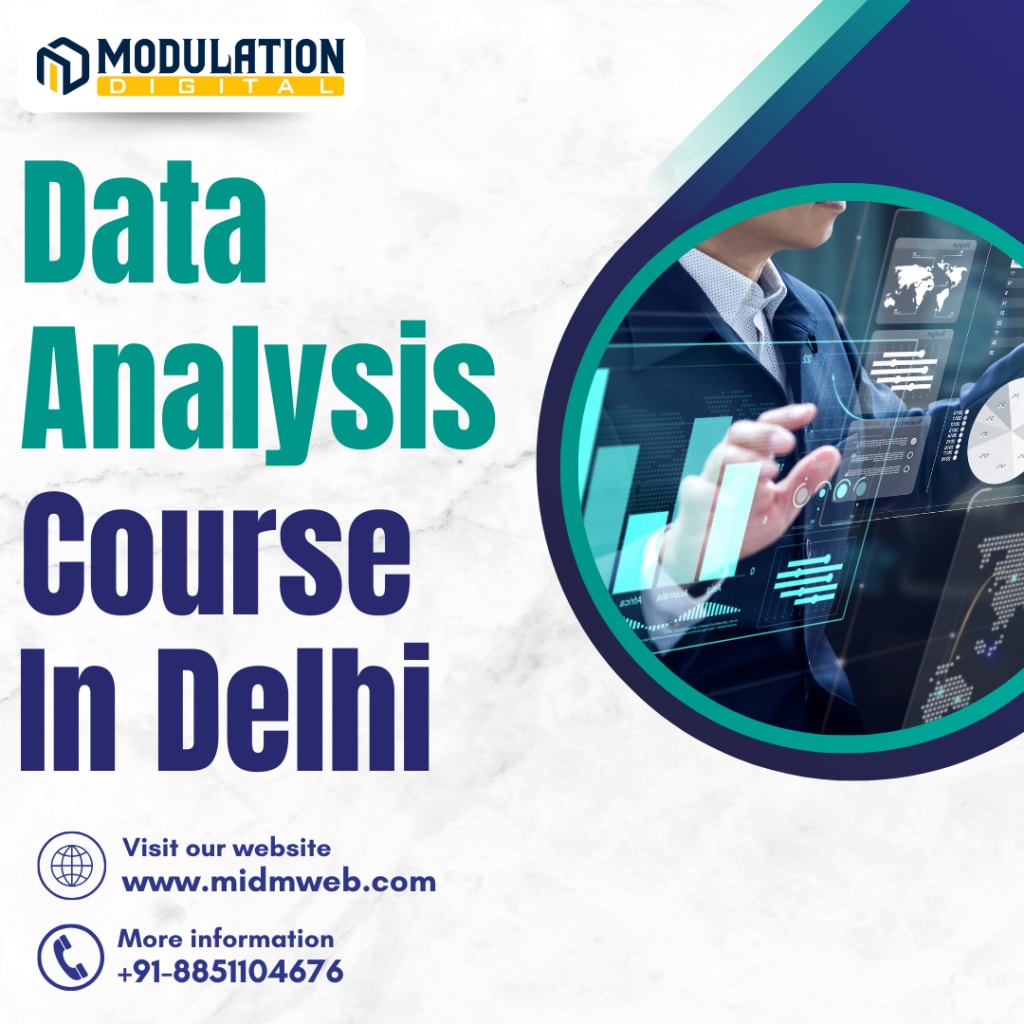
Introduction to Data Analysis
In today's data-driven world, the ability to analyze and interpret data is becoming increasingly valuable. Data analysis involves inspecting, cleaning, transforming, and modeling data to uncover meaningful insights and inform decision-making processes. Whether it's in business, healthcare, finance, or any other field, the demand for skilled data analysts is on the rise.
In today's digital age, the ability to interpret and derive meaningful insights from data sets is highly valued. As the demand for skilled data analysts continues to grow, enrolling in a comprehensive data analysis course becomes essential for individuals looking to excel in this field.
The Need for Data Analysis Courses
With the exponential growth of data, there is a corresponding increase in the need for professionals who can extract actionable insights from it. This has led to a surge in demand for data analysis courses. These courses provide individuals with the skills and knowledge necessary to excel in this rapidly evolving field.
The Data Analysis Course plays a very very important role in various fields, including business, science, finance, healthcare, and more.
Overview of Modulation Digital (MIDM)
Modulation Digital is a leading institute that offers comprehensive courses in data analysis. With a focus on providing practical, hands-on training, Modulation Digital equips students with the skills they need to succeed in the world of data analysis.
Data Analysis Course at Modulation Digital (MIDM)
The data analysis course in delhi at Modulation Digital covers a wide range of topics, including data visualization, statistical analysis, machine learning, and more. Taught by industry experts with years of experience, the course provides students with the knowledge and tools they need to excel in this field.
Data Collection: Gathering relevant data from various sources. This can include databases, surveys, sensors, social media, and other data repositories.
Data Cleaning and Preprocessing: Addressing issues such as missing values, outliers, and inconsistencies in the data to ensure its accuracy and reliability.
Exploratory Data Analysis (EDA): Examining and visualizing the dataset to understand its characteristics, identify patterns, and uncover insights. EDA often involves creating charts, graphs, and summary statistics.
Descriptive Statistics: Calculating basic statistical measures like mean, median, mode, standard deviation, and other metrics to summarize and describe the main features of a dataset.
Inferential Statistics: Making inferences and predictions about a population based on a sample of data. Hypothesis testing and confidence intervals are common techniques in inferential statistics.
Data Visualization: Representing data graphically using charts, graphs, and other visual elements to make complex patterns and trends more understandable.
Descriptive Statistics: Calculating basic statistical measures like mean, median, mode, standard deviation, and other metrics to summarize and describe the main features of a dataset.
Statistical Analysis: Applying statistical methods to analyze relationships between variables, test hypothesis, and make predictions about future observations.
Benefits of Taking a Data Analysis Course
Enrolling in a data analysis course offers numerous benefits. From increased job opportunities to higher earning potential, the skills gained through these courses are highly sought after by employers across industries.
Machine Learning: Utilizing algorithms and models to automatically learn patterns from data, make predictions, or classify information. Machine learning is often used for tasks such as regression, classification, clustering, and recommendation systems.
Big Data Analytics: Handling and analyzing large volumes of data that traditional databases may struggle to manage. Technologies like Hadoop and Spark are commonly employed in big Data Aanalytics.
Text Analysis and Natural Language Processing (NLP): Analyzing unstructured text data to extract insights, sentiment, and patterns. NLP techniques are used for tasks like text classification, sentiment analysis, and information extraction.
Predictive Modeling: Building models that use historical data to make predictions about future events. This involves selecting and training a model on a dataset and then using it to make predictions on new, unseen data.
Data Mining: Exploring large datasets to discover hidden patterns, relationships, or trends. Data mining techniques include clustering, association rule mining, and anomaly detection.
Real-time Analytics: Analyzing data as it is generated or received, allowing for immediate decision-making. Real-time analytics is crucial in applications where timely insights are essential.
Interpretation and Communication: Interpreting the results of the analysis and communicating findings to stakeholders. This often involves creating reports, dashboards, and presentations.
Why Choose Modulation Digital (MIDM) for Data Analysis Course?
Modulation Digital stands out from other institutes due to its comprehensive curriculum, experienced faculty, and track record of success. With a focus on practical, hands-on learning, Modulation Digital ensures that students are well-prepared for the challenges of the real world.
Interdisciplinary Expertise: Strength your foundational Knowledge and apply this understanding to specific problems, get versatile training in data-sentric research, and build competencies who work in multiple programming in environment.
Strong Acadmeic Support: Learn From a variety of Activities and through high degree of Communication Between Faculty and Students.
Self-paced Learning: Engage and learn at your own faq. Explore our extensive e-libraries, access your learning materials online anytime, anywhere attend live and Recorded lectures and talks that works for your schedule and engage in discussion on our platforms. access study material even on low bandwidth internet on an advanced digital platform that can be used on your phone, laptop, or desktop.
Industry-Oriented Curriculum: Gain real world insights from industry focussed modules and projects. learn from faculty who come with decodes of rich industry experience and expertise and interact with mentress & faculty to understand industry specific challenges and Oppurtunities.
In Conclusion:
Enrolling in a data analysis course in delhi at Modulation Digital is a smart investment in your future. With a comprehensive curriculum, experienced faculty, and a track record of success, Modulation Digital prepares students for rewarding careers in data analysis.
Modulation Digital is recognized for its quality and has gained accreditation for many of its programs. Modulation Digital certificates are widely accepted by governments, corporate organizations, and higher education, institutes for jobs in higher education, future prospectus.
About the Creator
MIDM WEB
Website design and development, SEO, Content Writing, Graphic Designing, App development, Social Media Marketing, Email Marketing, Google Ads, Paid Ads, and many more. You will train from our top subject matter expert.






Comments
There are no comments for this story
Be the first to respond and start the conversation.